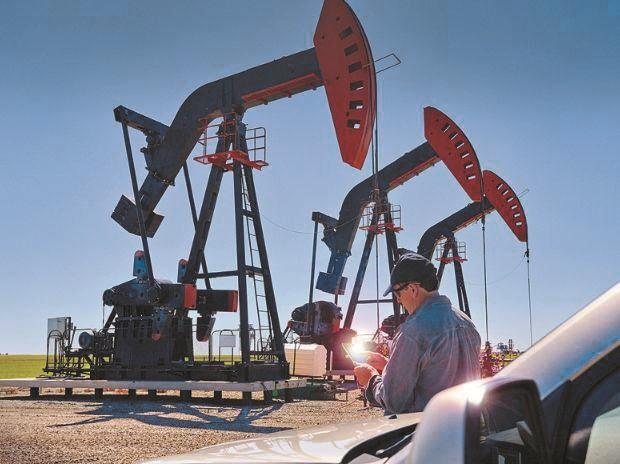Global oil demand will rebound more slowly in 2021 than previously thought because of the lingering impact of the coronavirus pandemic, OPEC said on Monday, hampering efforts by the group and its allies to support the market.
Demand will rise by 5.90 million barrels per day (bpd) next year to 95.89 million bpd, the Organization of the Petroleum Exporting Countries said in a monthly report. The growth forecast is 350,000 bpd less than expected a month ago.
The prospect of a weaker demand recovery has already prompted OPEC and its allies, a group known as OPEC+, to slow the pace of its scheduled oil-output boost in 2021. An OPEC+ panel gathers on Wednesday to review the market.
Oil has rallied above $50 a barrel, its highest since March, supported by hopes that a rollout of vaccines will lift demand, despite major European countries remaining in lockdown mode.
Germany is imposing stricter measures from Wednesday.
OPEC said that, while fourth-quarter growth was forecast to slow as lockdowns are re-implemented and it was possible some of these measures may be extended into 2021, vaccine developments had brightened the economic outlook.
"While the 2021 forecast remains at 4.4%, recent positive news about faster-than-anticipated vaccination programmes in major economies provides potential upside for next year's growth forecast," OPEC said in the report.
The group has lowered its 2021 demand growth forecast from an initial 7 million bpd in July. OPEC also in the report left its estimate of this year's historic contraction in oil use steady at 9.77 million bpd.
The report showed rising output too, another headwind for OPEC+, despite continued strong OPEC compliance with pledged supply curbs made this year as the pandemic hit demand.
OPEC said its output rose by 710,000 bpd to 25.11 million bpd in November, driven by a rebound in Libya, an OPEC member exempted from making cuts.
The group forecast demand for its crude will be 200,000 bpd lower than expected next year at 27.2 million bpd. That would still allow for higher average OPEC production in 2021.
 Dear Reader,
Dear Reader,
Business Standard has always strived hard to provide up-to-date information and commentary on developments that are of interest to you and have wider political and economic implications for the country and the world. Your encouragement and constant feedback on how to improve our offering have only made our resolve and commitment to these ideals stronger. Even during these difficult times arising out of Covid-19, we continue to remain committed to keeping you informed and updated with credible news, authoritative views and incisive commentary on topical issues of relevance.
We, however, have a request.
As we battle the economic impact of the pandemic, we need your support even more, so that we can continue to offer you more quality content. Our subscription model has seen an encouraging response from many of you, who have subscribed to our online content. More subscription to our online content can only help us achieve the goals of offering you even better and more relevant content. We believe in free, fair and credible journalism. Your support through more subscriptions can help us practise the journalism to which we are committed.
Support quality journalism and subscribe to Business Standard.
Digital Editor

RECOMMENDED FOR YOU